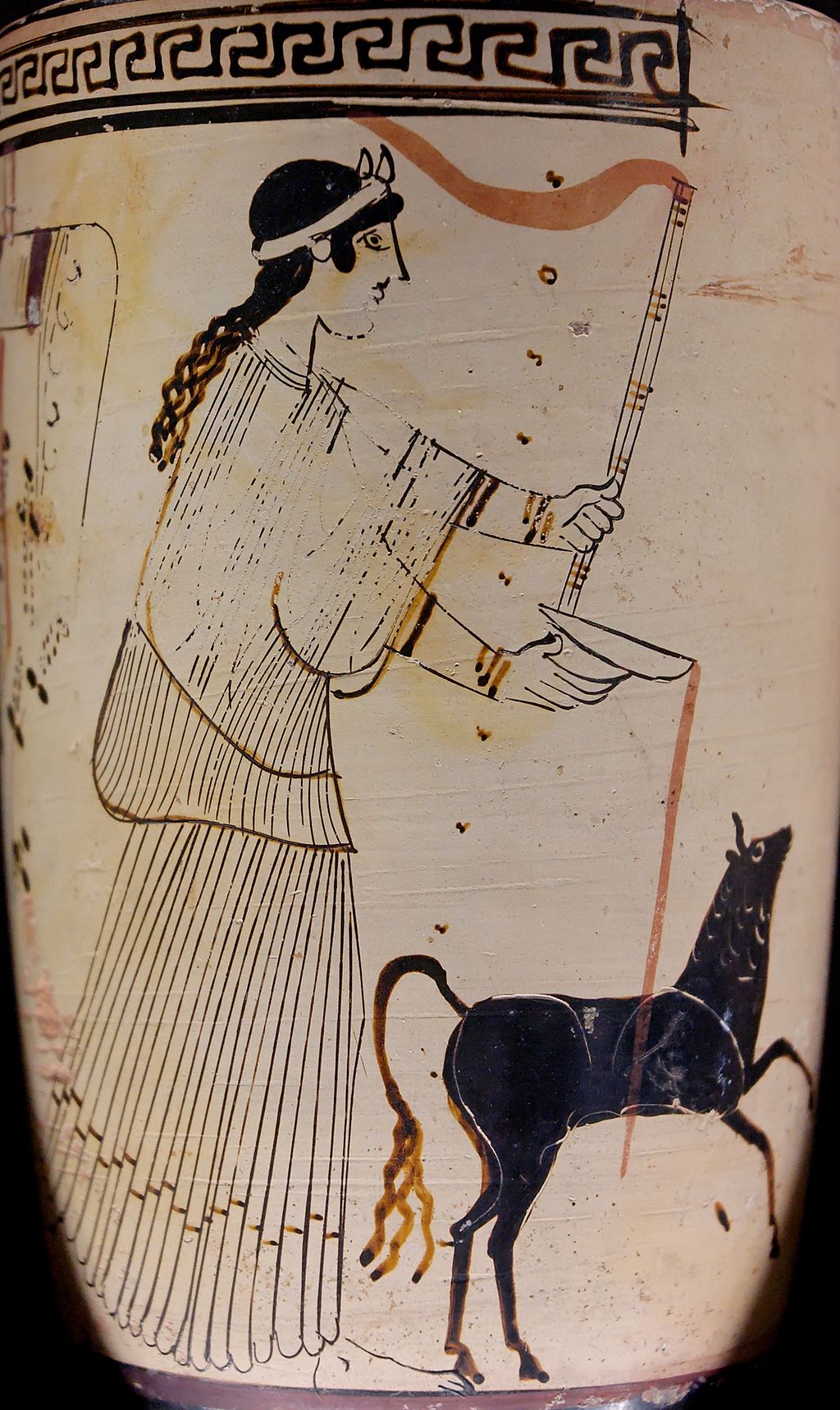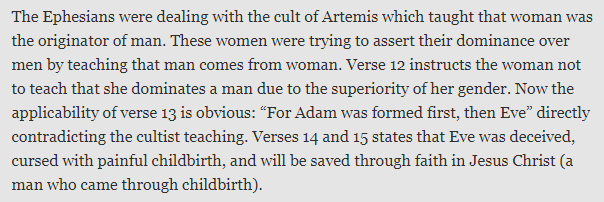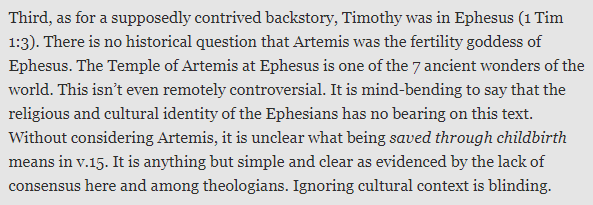
This is part of a series on patriarchy, headship, and submission. See this index.
Once upon a time, on June 21, 2017, Dalrock posted an article entitled “Straining out gnats” (PDF) in which he discussed 1 Timothy 2:12 with respect to women teaching and holding authority. For the first time, I decided to comment there. Here a piece of my lengthy comment and my subsequent retort:
 …and…
…and…

A few days later, Dalrock responded to my comments with his article “Bespoke Epistles,” which relentlessly mocked me for coming up with a contrived story. Dalrock even encouraged his commenters to mock me some more.
Yet, contrary to Dalrock’s claim, I didn’t invent the backstory. It remains a fairly common belief among both religious and secular historians. I had accurately portrayed this as a mainstream historical belief, but, it turns out, I was wrong about a number of things. So it’s probably a good thing that I’ve never used this argument since then, despite writing on this passage many times.[1]
The Historical Artemis
It is with some irony all around that the egalitarian feminist Marg Mowczko just posted “Sandra Glahn Debunks Myths About Artemis,” which absolutely rips apart a portion of this backstory: not because it is theologically questionable, but based on historical analysis.
It turns out that the following beliefs on Artemis are historically unfounded:
- That Artemis was associated with prostitution.
- That Artemis worship was explicitly anti-male and pro-female.
- That Artemis was a fertility goddess.
- That Artemis was a maternal figure.
But not everything about Artemis is a myth:
- Artemis—who was not married—was a goddess of virginity.
- Artemis was born first, and her brother Apollo was born second.
- Artemis was a midwife who had the power to deliver babies safely.
Some of these may prove especially relevant:
On Historical Context
Dalrock believed that the Bible should be interpreted without consideration to factors outside of the pages of scripture. So, by Dalrock’s standard, if Ephesus contained the Temple to Artemis—and it did—then we may not reference the history of Artemis worship to help us understand 1 Timothy 2:11-15.
This is an unreasonable standard. Historical context is quite important.
The New Testament letters—like the mini-letters to the churches in Revelation—were written to specific congregations dealing with specific problems unique to them in specific cultural contexts. Imagine, for example, neglecting the relevance of the emancipation of women in Rome (e.g. Ephesians and 1 Peter), the role of slaves in Rome (e.g. Philemon; 1 Peter), the Roman custom of adoption (e.g. Galatians), the Roman military tradition (e.g. Ephesians; Philippians), and the significance of Pergamum being the seat of Satan to the prophecy of the beast (e.g. Revelation and Daniel). Or consider this bespoke interpretation of Ecclesiastes 7:28 from the Amplified Bible.
And, of course, by examining the things we can confirm about Artemis, we can still see how Paul references the cult of Artemis in 1 Timothy. We can also winnow out some of the common interpretations for the verse.
For example, the fact that Artemis was associated with a midwife who delivers babies safely, but was not concerned with maternal matters, we can conclude that whatever Paul was saying, he wasn’t saying that women should focus on raising their family rather than teaching men.
What all this demonstrates is that while we all think we know what is correct, to truly seek the truth at all costs we must always be ready go back, look at what we said previously, and be willing to modify it according to new evidence that comes to light.
Learning From One’s Errors
When I said…
On the other hand, my other statement has aged quite poorly:
See, I’ve written extensively about headship on this blog.[2] I probably write about it more than any other topic. In particular, I’ve noted that kephale connotes preeminence and firstness, not origination. In fact, it is this interpretation of 1 Timothy 2 (that women were the originators of man) that likely led me to spend so much time researching this topic! So, had I had the benefit of unlimited foresight, I might have written this to Dalrock instead:
Like the pursuit of true science, understanding scripture requires a firm and unyielding commitment to discovering truth, a never-ending process of refining one’s viewpoints, striving always to get closer to the truth. So long as you are always willing to challenge your own beliefs, getting it wrong is really no big deal. As long as you keep trying to get it right, heresy—which is unavoidable—just isn’t a big deal.
Dalrock’s mockery—an ad hominem—served no logically constructive purpose. It’s been almost seven years and it is still divisive. It always will be. The feminist is more level-headed and intellectually rigorous than Dalrock was. Seven more years from now, and the worst you’ll be able to say is that the feminist was wrong (Woah, big deal!).
Christians who attack the person and not the idea—especially if that person is reasonable—should be ashamed of their divisive behavior, which is not at all constructive. Such behavior rarely stands the test of time.
Footnotes
[1] My previous writings on 1 Timothy 2:11-15 include:
- On Childbearing
- On Headship and Authority
[2] See this index on Headship Submission.

Pingback: Links of Interest
Pingback: Should Man Woo Woman? - Derek L. Ramsey